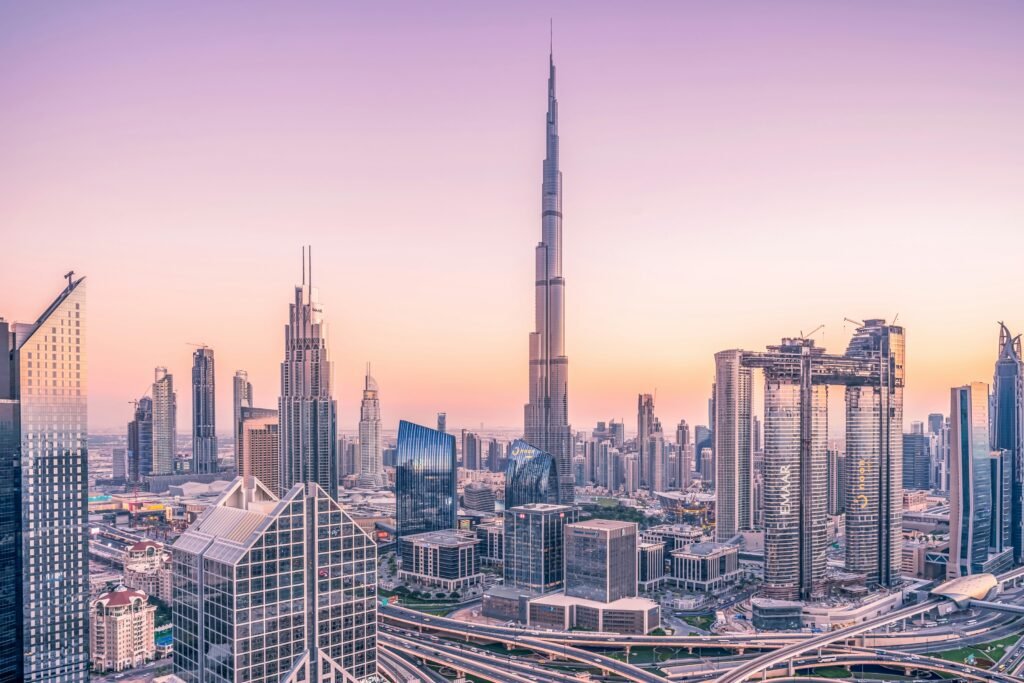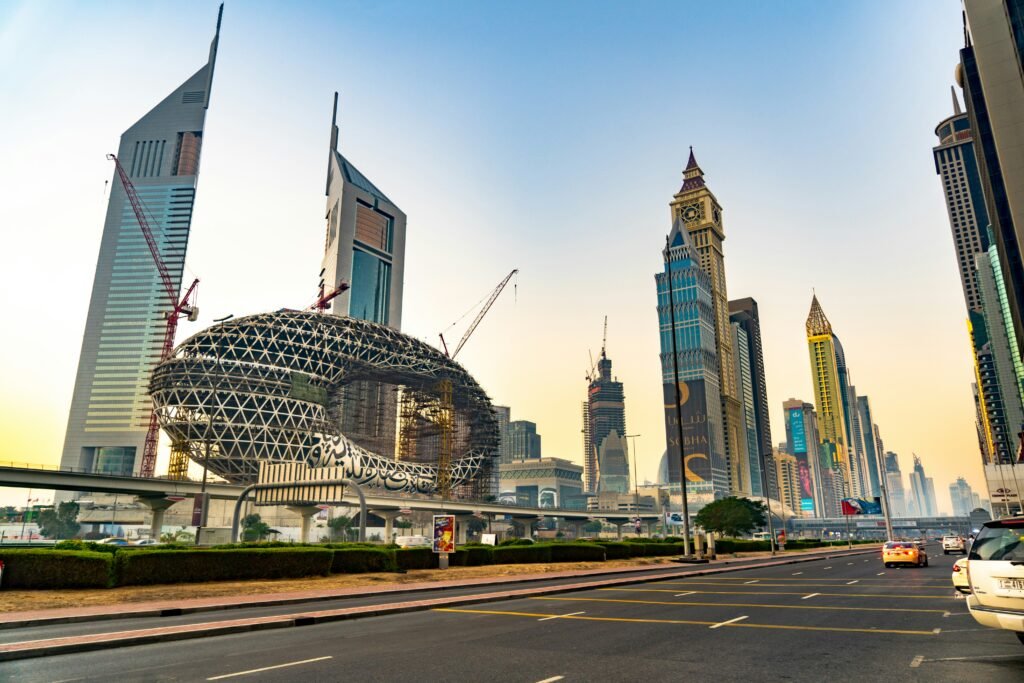Today, Dubai is considered a business city, more than half of the start-ups and companies are drawn toward this city. The city possesses an advantageous geographical location, developed and efficient infrastructure, and a friendly business environment to suit those who might be in a position to start or extend their business.
Company formation in Dubai has potential openings in free zones also as the mainland and Dubai has something for all businesses and it includes the service sector, trading sector industrial sector, etc.
Registration of a business in Dubai is a legal process that means undertaking certain formalities, obtaining permissions and licenses to start a business in the area as well as advertising the business to interested buyers. This guide will outline some basic procedures to undertake such as selecting a legal form of the company, obtaining a trading license, and meeting VAT requirements.
It will also mention more about the advantages of incorporating an offshore company, that of the golden visa that is worthwhile enjoying, as well as the necessity of legal services when establishing a company. As with the free zone or mainland option, the purpose of this guide is to offer important tips and guidelines when starting a new business in Dubai.
Understanding Dubai’s Business Landscape

By now the Emirate of Dubai is truly a business city for international investors and businessmen providing them with great opportunities for economic growth and development. The beautiful city is situated in the perfect location, boasts of well-developed infrastructure, and has friendly policies towards business which makes the environment replete with opportunities in numerous sectors.
- Economic Zones Overview
The business environment of Dubai is defined by the concept of economic zones that are considered to be the keystone of foreign investments and the growth of the economy. These zones are divided into two main categories that include free zones and economic zones.
Free zones may be referred to as free trade zones or free economic zones these are certain areas in Dubai that adopt specific economic laws. These zones offer numerous benefits to businesses, including:
1. 100% foreign ownership
2. Possible tax exemptions
3. 100% repatriation of profits
4. Customs duty exemptions on imports and exports
Many free zones are dedicated to specific industries or sectors, such as technology, media, finance, logistics, healthcare, and manufacturing. Some notable examples of free zones in Dubai include:
Dubai Multi Commodities Center (DMCC)
Dubai Internet City (DIC)
Dubai Media City (DMC)
Dubai Silicon Oasis (DSO)
Key Industries and Opportunities

Dubai’s economy is now among the most diversified in the world, with oil accounting for less than 1% of GDP. This diversification has led to the emergence of several key industries and opportunities for businesses:
1. Tourism and Hospitality: Dubai attracts millions of tourists annually, driving demand for residential and commercial real estate. The Jumeirah Group, a Dubai-based luxury hotel company, exemplifies the success in this sector.
2. Technology and Innovation: Dubai aims to become a leading smart city, creating a strong demand for professionals in cutting-edge technologies. The city is integrating advanced digital infrastructure and smart systems into various sectors, including transportation, healthcare, energy, and public safety.
3. E-commerce and Digital Marketing: The expanding digital landscape in Dubai has created opportunities for e-commerce platforms and digital marketing services.
4. Financial Services: Dubai’s financial sector has experienced significant growth, with the DIFC housing 27 out of 29 systemically important global banks.
5. Real Estate and Construction: The real estate market in Dubai continues to thrive, with significant growth observed in both residential and commercial sectors.
6. Logistics and Transportation: Dubai’s strategic location has positioned it as a global logistics hub connecting Europe, Asia, and Africa. Companies like Aramex have leveraged this advantage to become leading players in the logistics industry.
7. Healthcare: This is because the population increases and as it does it requires medical services often. Dubai Healthcare City (DHC)is one of the special free zones for medical facilities.
8. Manufacturing: According to the UAE’s socio-economic development strategy, there is a clear plan for the industrial sector’s development until 2031, as this sector is vital for the economy.
9. Renewable Energy: Nevertheless, Dubai is still one of the most appealing regions for solar energy worldwide with a large-scale facility such as the Mohammed bin Rashid Al Maktoum Solar Park to generate 5,000MW of electricity by 2030.
10. Information Technology: The information technology sector is still growing in concern in Dubai; specifically, it concentrates on intelligent automation, ledger, IoT, and cloud solutions.
These industries along with the favorable business environment of Dubai, the tax regime, and the geographical location make the place best suited for doing business for start-ups and large companies as well.
It also plays an active role in the creation of an innovative vision of the city, its steady sustainable development, and the diversification of the economy of the city that provides a lot of opportunities for the successful development of business in the city.
The legal structures that are available to the business in the process of setting up of the business include:
Visa Regulations
To start a business in Dubai first, it is crucial to learn about the available visa types for intending business personalities. The most common types include:
1. Investor Visa: Popularly referred to as a partner visa, this enables business people to live in the UAE and manage their businesses.
2. Employment Visa: For those interested in working for their own company which is to be sponsored by the business venture.
3. Freelance Visa: Most suitable for online businesses by the use of the website for small-scale business people such as sole traders and freelancers as they bear proof of professional qualification and business license.
4. Investor Residence Visa: A type of visa given to those who have invested in properties in the UAE and are planning to reside there.
The visa application process typically involves several steps:
1. To avoid compromising its operations the company needs to secure a legal base in UAE.
2. Gathering required documents
3. Submitting the application
4. Undergoing a medical examination
5. Receiving visa approval
6. Collecting the visa
However, it should be understood that before getting any residence visa an applicant should receive an electronic entry permit which is valid for 1 to 6 months. It also provides time for the conduct of medical tests, filing of applications, and filing of biometrics.
Sponsorship Rules
Local sponsors are integral in mainland business formation in Dubai especially where the rights of foreigners are involved. These are normally either local Emirates or companies with their base of operation being in UAE and these normally take a minority stake in the company perhaps 51% due to legal requirements of the UAE government.
There are two main types of local sponsors:
1. Corporate sponsors: Companies that are residents and have registered their business locally as nominee partners
2. Individual sponsors: Until the following condition is met, the legal partnership needs to be fulfilled by the UAE nationals.
Often the level of local management sponsors’ engagement can be different. Some have a passive involvement where they only provide legal recognition while others may have an active involvement whereby they are involved in strategic management decisions.
- Recipients/Local Sponsor: Before entering into a partnership, legal relations with the local sponsor should be clearly and comprehensively defined and agreed on with provisions relating to the distribution of profits, decision-making over the company’s activity, as well as the rights of sponsorship.
However, the latest amendments to the ownership laws have ensured that foreign investors have the full rights of ownership in most of their businesses on the mainland. Also, the 51% local ownership rule does not apply to the free zone-based companies.
Advertising Your Business In Dubai

Digital Marketing Strategies
Today, the modern world and the main competitive Dubai business environment can hardly be mentioned without digital marketing. It is therefore an ideal place for firms to explore because it’s home to a cross-section of people and a constantly developing digital milieu.
Therefore, for any business to compete effectively in this market, it requires coming up with a well-coordinated digital marketing plan that incorporates numerous tools.
The first and most significant action is to have an attractive website design that is friendly to the search engine. This means that the business establishes initial, as well as subsequent, interest to gain the patrons’ attention.
One of the examples of the applied analytical tools is Google Analytics which assists in tracking user’s behavior and website traffic to use collected data to improve marketing strategy.
It was also found that the use of social media continues to be an effective way of managing brands and interacting with customers.
It envisages that content must be created from the essential characteristics of each platform to encourage the audience to engage with the brand in a lively manner and increase the brand’s visibility.
Since Dubai is a cosmopolitan city with a large population from different parts of the world the content needs to be created in Arabic and English considering cultural sensitivity. Collaboration with the local content makers can provide credibility.
- Video marketing is especially helpful in presenting Dubai’s lifestyle and brands to the viewers. It is recommended that businesses may need to create explainer videos, product demos, or perhaps some behind-the-scenes to appeal to local audiences.
- Other aspects of digital marketing in Dubai include the setting of thought leadership. This can be done by posting useful articles in the blog, sending out informative e-books, or conducting online seminars with topics of interest to the target audience.
One aspect of local SEO that can be beneficial for content optimization is keyword targeting which will positively influence the organic search results.
- Paid advertisement is another form of advertising that guarantees a lot of impact and almost real-time response. Companies must advertise their products and services by categorizing the people in society so that they can easily market their goods to the desired category of people.
- Sometimes, it may be possible to have great visuals and a perfect call-to-action message to capture people’s attention and encourage them to take the required action.
- Email marketing remains one of the effective tools of direct marketing. The target is to establish a core list of subscribers who would receive consistent and timely relevant content within the business. Email campaigns are utilized for notifying clients of specific offers, informing the clients of new products and services, and maintaining communication with potential customers.
As voice search continues to gain currency, it is time for companies to start incorporating natural-speaking keywords into their advertising material. This adjustment ensures accessibility with the growing use of voice commands to seek information from consumers.
Conclusion
Starting a business in Dubai is full of countless opportunities for business people and companies who would like to seek new markets. The favorable factors that contribute to success include favorable location, state-of-art infrastructure, and business-friendly policies. While some companies may require free zone facilities others may require mainland location and thus Dubai offers a wide variety to suit the needs of various firms.
The guide which is discussed above provides valuable information about the crucial steps: Business structure choice, trade license, and regulation, so the readers will have a good starting point to begin.
Timely remember the general trends and characteristics of the local market to effectively start your business in Dubai and take advantage of the city’s benefits. Some of the areas discussed in the guide include visa requirements, sponsorship policies, and marketing issues which are very effective in starting an organization in this active business market.
Following such guidelines, and consulting an expert where necessary, one will be in good standing to approach the business setup and tap into the growth potential of one of the world’s fastest-growing economies.





